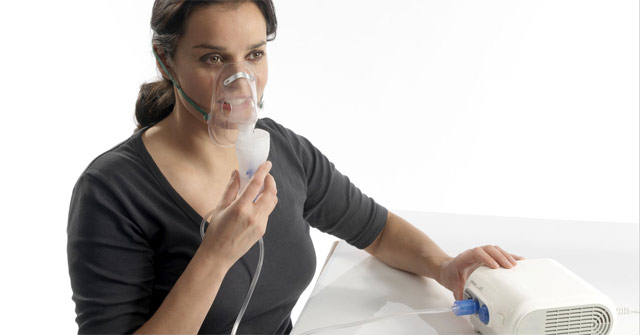What is aerosol? Effects and precautions when using aerosol
Aerosol is a local treatment for diseases of the respiratory tract mucosa such as nasopharyngitis, sinusitis, laryngitis, bronchitis . by using a fog diffuser. . As a result, the drug will act directly on the inflamed sites on the upper or lower respiratory tract mucosal system.
The effect of aerosol
Aerosol is the fastest effective treatment: This is the most advanced treatment technique for respiratory diseases. With aerosol, the drug particles will penetrate deep inside the body through quick inhalation (within 5 minutes), then penetrate into the alveoli, bronchus to help the drug work best. . Meanwhile, other methods take a lot of time, oral route from 30-60 minutes and parenteral route from 15-30 minutes to work.

Nebulization helps minimize side effects from medication to the whole body. The methods used to treat oral drugs, injections will leave side effects affecting health over time.
For example, using inhaled bronchodilators will help reduce side effects such as tremor of hands, palpitations, tachycardia, etc., compared to oral or parenteral administration.
The object uses aerosol
Aerosol methods are usually indicated in the following cases:
- Patients with acute asthma attacks, laryngeal breathing, respiratory failure.
- Patients need to dilute sputum before performing treatment.
- The medicine is prescribed to use without a spray bottle or the patient is not able to use the dose sprayer.
- Need to control or treat long-term infections . with high dose inhalation antibiotics
Note when using aerosol
When using aerosol, you should follow the directions, instructions on the type of medicine, dosage and duration of use by your doctor.
Most aerosol drugs are corticosteroids, which can cause very dangerous effects if overdosed. Therefore people should not abuse aerosols, especially against children. Continuous aerosol therapy can lead to drug dependence, which causes permanent damage to the lungs.
Do not arbitrarily use aerosol to avoid unwanted effects. For example, do not use water-based drugs with a aminoglycoside group to aerosolize unknown speech because it can cause cochlear poisoning that can lead to deafness. Do not use essential oils on infants or under 18 months because it can cause respiratory depression. Adults who indiscriminate abuse can cause addiction and decreased smell.
Experts do not recommend aerosolized asthma patients at home because it will make it difficult to detect signs of disease worse.
Must comply with the drug phase when using a nebulizer. Mixing the wrong dosage, the wrong size mist sprayer will not work.
When using aerosol, you must follow strict regulations on anti-infection, changing new wires for each aerosol.
You should read it
- ★ Xiaomi launches Redmi Note 8T: Snapdragon 665 chip, 4,000 mAh battery with fast charging 18W, priced at $ 220
- ★ Redmi Note 9 Pro / Pro Max: Snapdragon 720G, 5200mAh battery, priced from 4.09 million
- ★ How to create sky effect for photos with B612
- ★ Xiaomi launched the Mi Note 10 / Note 10 Pro, the world's first 108MP camera
- ★ Samsung recalled Galaxy Note 7 and this is all you should know